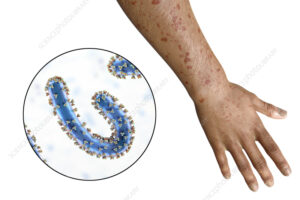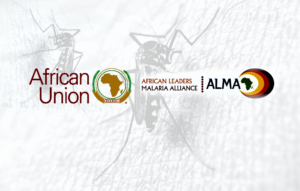Ethiopia Confirms First Marburg Outbreak, as Fear and Vigilance escalate in Jinka
Ethiopia has entered uncharted public-health territory after confirming it’s first-ever outbreak of Marburg virus disease (MVD). Nine cases have been detected in Jinka, a bustling town in the South Ethiopia Region where daily life has suddenly been reshaped by anxiety, heightened surveillance, and urgent government action.
The confirmation validated by Ethiopia’s National Reference Laboratory, followed reports of a mysterious cluster of severe illness. What began as a local concern quickly escalated into a national emergency, prompting health authorities to launch a full-scale response with support from the World Health Organization (WHO) and Africa Centres for Disease Control and Prevention (Africa CDC). Pushing a community on the edge of fear and vigilance.
![]()
![]()
In Jinka’s markets, schools and transport hubs, the atmosphere has turned to mindful watchfulness. Health workers move from door to door conducting community-wide screening, while residents wait anxiously for updates. Families who have loved ones under observation face long days of uncertainty, made even more difficult by the stigma that often surrounds viral hemorrhagic fevers.
Local leaders have been amplifying public-awareness campaigns, encouraging people to report symptoms quickly, avoid unsafe burial practices and limit physical contact when illness is suspected. This communication has become as important as medical treatment itself. Helping counter misinformation for many residents, and distrust in a region where memories of past outbreaks are still fresh.
The outbreak has also become an early test of Ethiopia’s health-security infrastructure at a time when the country is navigating political transitions and the lingering effects of internal conflicts. Rapid mobilization of response teams suggests lessons learned from previous disease threats, but it also highlights disparities between urban centers and rural districts, where health systems remain fragile. The politics of preparedness calls for regional cooperation as a critical pendulum. Neighboring South Sudan, with one of East Africa’s most vulnerable health systems, remains on high alert. Cross-border movement for trade, pastoralism and family ties increase the urgency of containment; and raises questions about long-term investment in public-health preparedness across the Horn of Africa.
![]()
Understanding Marburg and why the stakes are high. Marburg virus is a close relative of Ebola, one of the world’s deadliest pathogens, with an average fatality rate of about 50%. Originally transmitted from fruit bats, it spreads between humans through direct contact with bodily fluids or contaminated surfaces. There are still no approved vaccines or specific antiviral drugs.
However, health experts emphasize that early supportive care such as rehydration and symptom management, can dramatically improve odds of survival. This is campaign that Ethiopia’s clinicians are pushing as they race to identify and treat cases.

Currently, Ethiopia’s focus is on breaking chains of transmission before the virus gains a foothold. But the outbreak has also opened a wider conversation about trust in health institutions, investment in surveillance systems and the social implications of communities often earlier hit the most, by emerging diseases.
As Jinka residents watch unfolding events with a mix of fear and determination, their experience may shape how Ethiopia and the region confront future epidemics.






